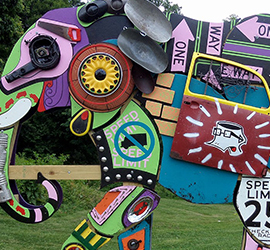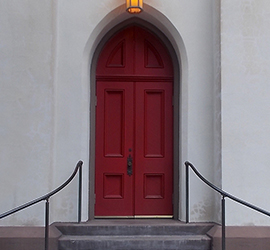Be Civil
Civility consists of respect for others, consideration, maturity, self-control, tolerance, selflessness, etiquette, tact, equality, morality, honesty, awareness, friendship, moderation, listening, compassion, being agreeable, abiding by rules and peace. Expressions of incivility include personal attacks, aggressive behaviors that disrupt others or create unproductive stress, rudeness, dishonesty and humiliation. In today’s world civility is needed now more than ever.
On occasion I forget the rules of civility. I am always quick to evaluate my actions when in doubt and apologize, which aids in my learning, thus becoming an even better person. My goal is never to repeat an uncivil action twice.
The level of incivility occasionally shocks me. You can hear it in the stores when shopping, in conversations on a bus, at home between friends, in the news and in churches, of all places. When did people stop caring for others? When did manipulation become the main ingredient for survival? Why is "sorry" such a challenging word to say, and "I love you" the hardest? Unlike our computers, we can’t simply reboot. It would be great to upload a program to our brains that would always have us being civil, especially in those most difficult moments. Wouldn’t that be our saving grace, our silver lining?
It’s time to mean what we say and say what we mean. It’s time to be kind to one another. A civil action can make all the difference in the world.
The one uncivil action I wish to replace is dishonesty. It runs rampant in our society, especially among politicians. I was having a conversation with a friend not too long ago, asking him some questions for which I knew the answers. His ability to be forthright was flawed. He disappointed me and, in turn, disappointed himself.
Understand, the more we become aware of the needs of others, which means honoring them with fairness and respect, we will find ourselves atoning less frequently. The goal must always be to never apologize, and to be truthful at all costs, especially to those who’ve deceived us. When we get caught up in dishonesty with one person, it then becomes easier to replicate, ultimately becoming a method of functioning – what one might call your modus operandi. Trying to manage this house of cards is unlikely, and all will fall apart at the most unfortunate time.
We must all be willing to sincerely apologize, working hard to repair the damage we caused. Think carefully about how you feel because you can’t say you are sorry if you don’t understand what you did wrong (and appeasement can make things much worse). It’s not necessarily the action, but the intent.
Apologizes will not always be promptly received. You can’t expect an automatic reward for your effort. Consider those you hurt may find it hard to accept. Your acknowledgment of wrongdoing does not always immediately heal the pain, and in many cases it doesn’t erase the memory. How can it? Remember there’s always room for improvement. Be aware. Infect the world with civility. – paerki
































































































































































































































































